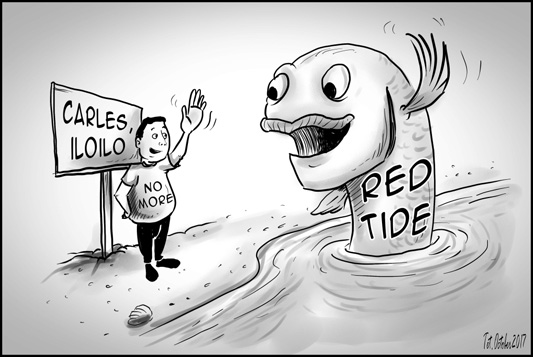
[av_one_full first min_height=” vertical_alignment=” space=” custom_margin=” margin=’0px’ padding=’0px’ border=” border_color=” radius=’0px’ background_color=” src=” background_position=’top left’ background_repeat=’no-repeat’ animation=”]
[av_heading heading=’EDITORIAL’ tag=’h3′ style=’blockquote modern-quote’ size=’30’ subheading_active=’subheading_below’ subheading_size=’15’ padding=’10’ color=” custom_font=”][/av_heading]
[av_textblock size=” font_color=” color=”]
Thursday, October 19, 2017
[/av_textblock]
[av_image src=’http://www.panaynews.net/wp-content/uploads/2017/10/editorial-cartoon-for-oct19.jpg’ attachment=’121036′ attachment_size=’full’ align=’center’ styling=” hover=” link=” target=” caption=” font_size=” appearance=” overlay_opacity=’0.4′ overlay_color=’#000000′ overlay_text_color=’#ffffff’ animation=’no-animation’][/av_image]
[av_textblock size=’18’ font_color=” color=”]
THE UNITED Nations Human Rights Council has declared that all people have a right to internet access to fully enjoy other fundamental liberties such as the rights to information, education and free expression.
Here’s one good development to all of us suffering from slow internet speed – a proposed legislation reclassifies broadband access as a “basic service” so that providers may be compelled to offer faster internet connection under pain of harsh administrative fines.
The Philippines’ internet connection speed has been rated the slowest in the Asia-Pacific. Based on Akamai Technologies Inc.’s State of the Internet Connectivity Report as of the first quarter of 2017, our 5.5 Mbps average connection speed pales when compared to Thailand’s 16 Mbps, Vietnam’s 9.5 Mbps, Malaysia’s 8.9 Mbps, and Indonesia’s 7.2 Mbps. Mbps is short for megabits per second – a measure of network transmission or data transfer speed. A megabit is equal to one million bits.
Worldwide, South Korea has the fastest average connection speed at 28.6 Mbps while Paraguay has the slowest at 1.4 Mbps.
House Bill 5337 offers a solution to our persistently slow, inefficient and expensive internet access by fully empowering the National Telecommunications Commission (NTC) to regulate the service. At present, because the 22-year-old Philippine Public Telecommunications Policy Law treats internet access as a “value-added service” rather than a basic service, providers are free to provide services on their own terms.
HB 5337, however, redefines internet access as “a basic telecommunications service within the jurisdiction and regulatory power of the NTC.” Under the bill, the NTC may command telecommunications firms to deliver faster internet speeds within prescribed deadlines, or risk paying up to P100,000 in daily fines that could last up to 500 days, or reach up to P50 million, for every instance of non-compliance.
The bill also grants the NTC and its officers immunity from civil suits with respect to any directives they may issue to ensure the performance of time-bound internet access upgrades.
Rightly so. It is the duty of the State to protect the interest of consumers, including internet users, promote their general welfare, and to establish standards of conduct for business and industry, including the telecommunications sector.
[/av_textblock]
[/av_one_full]



